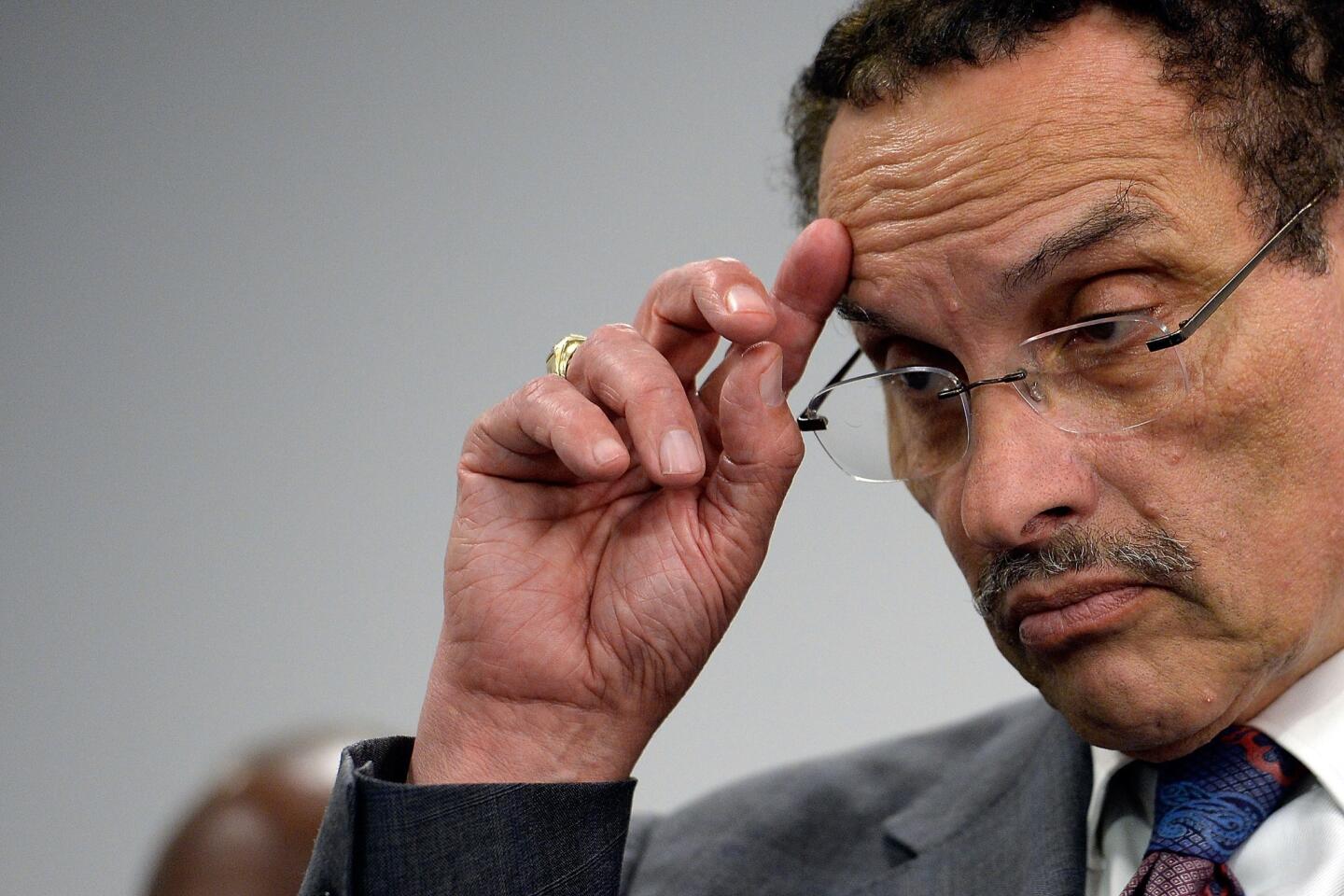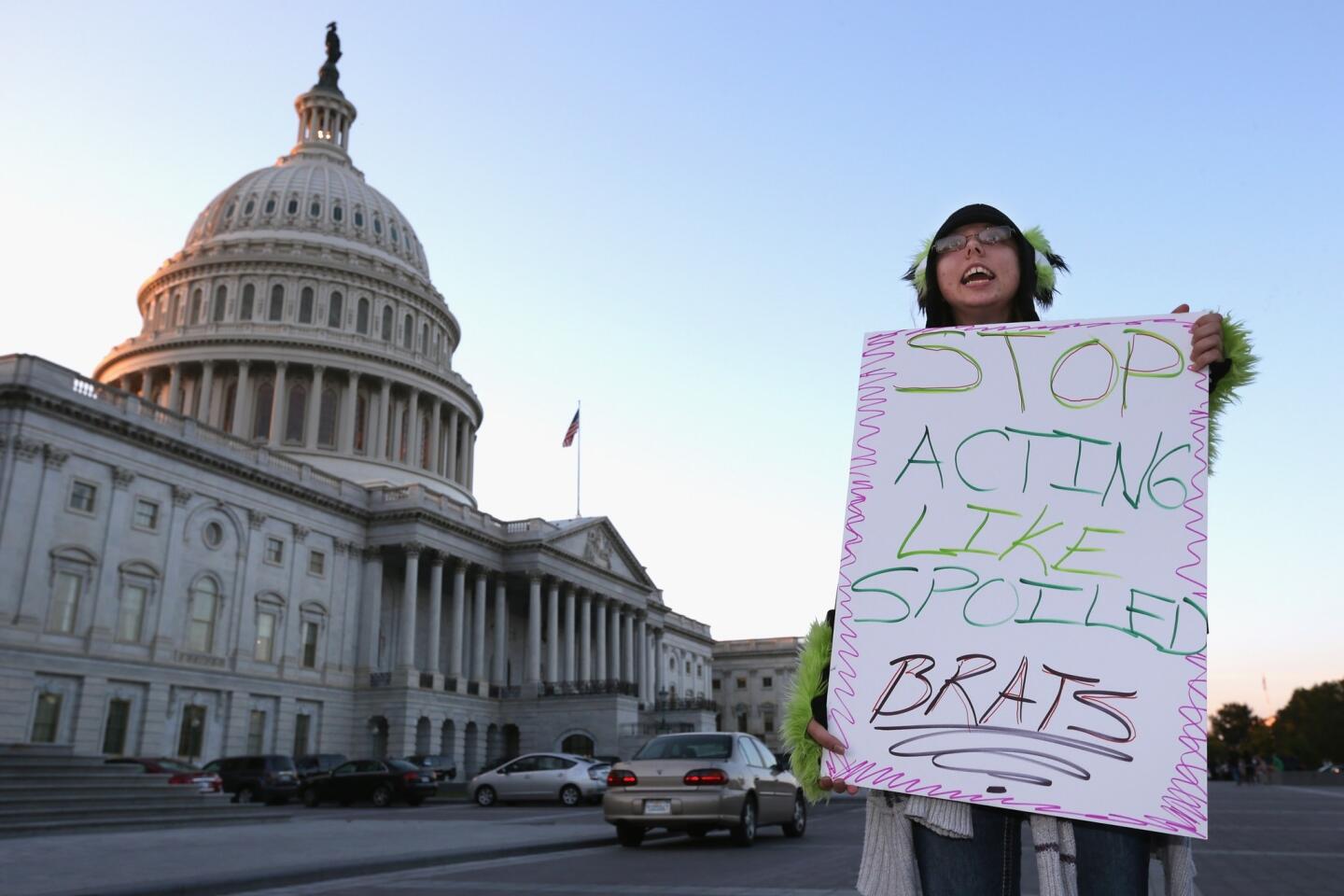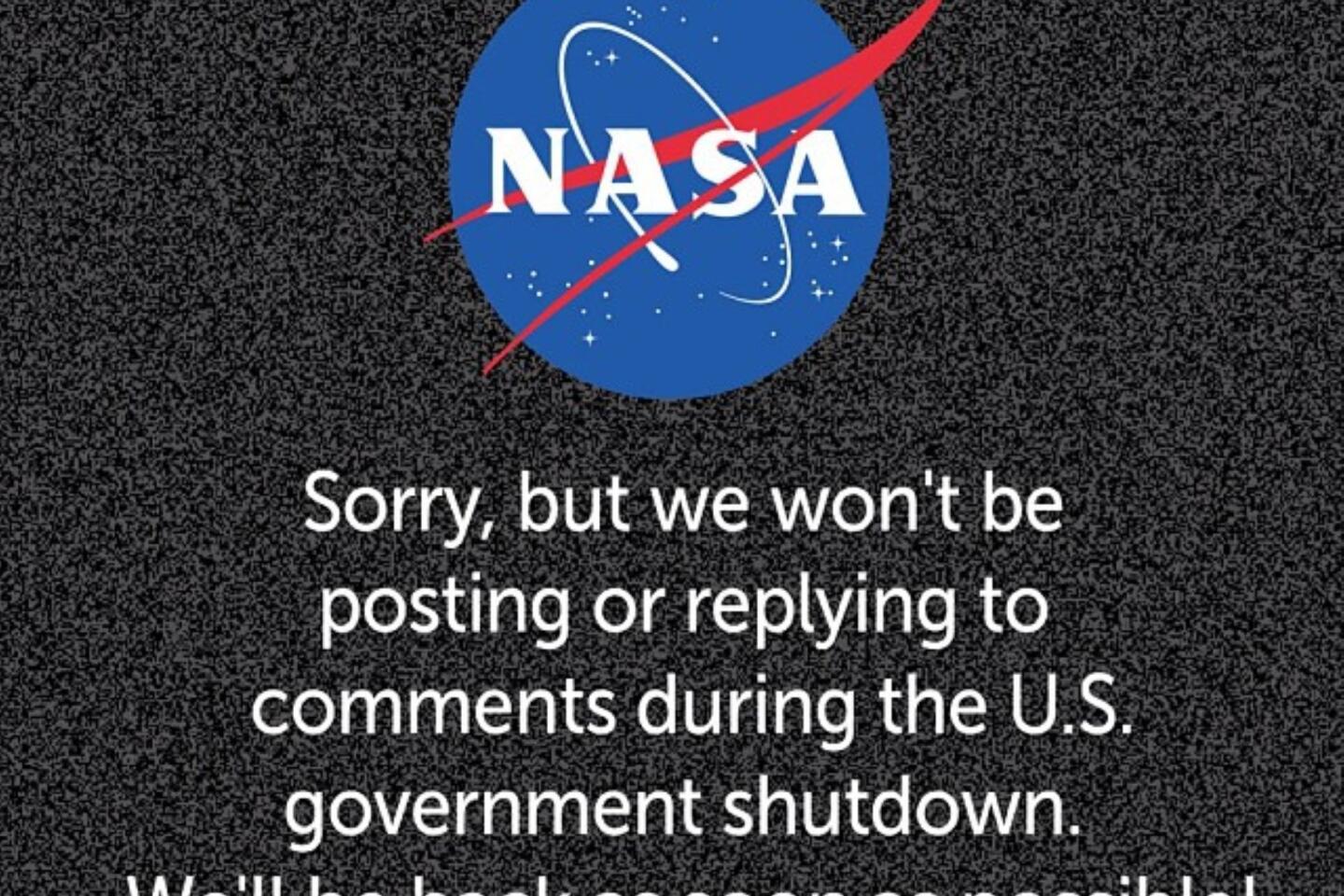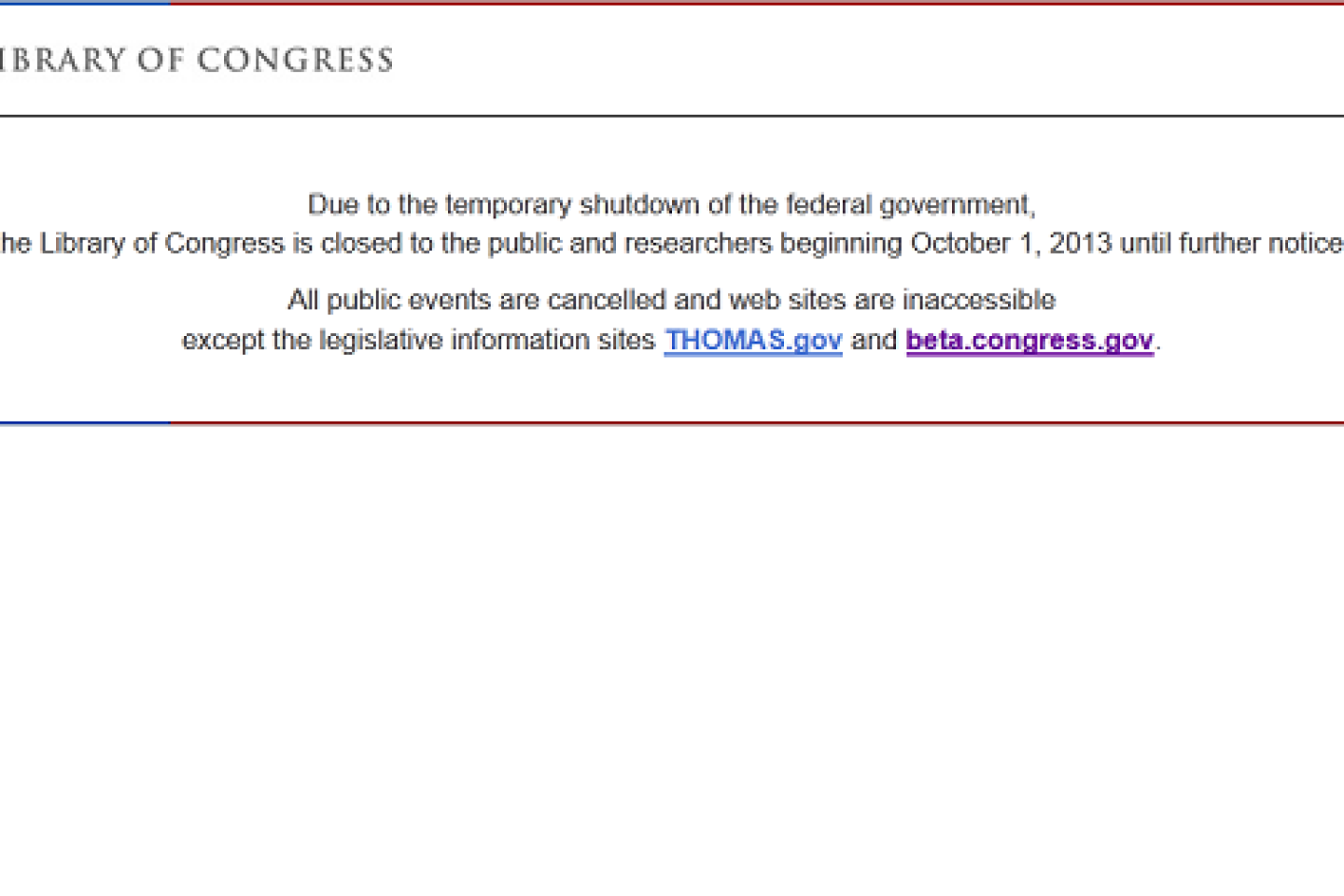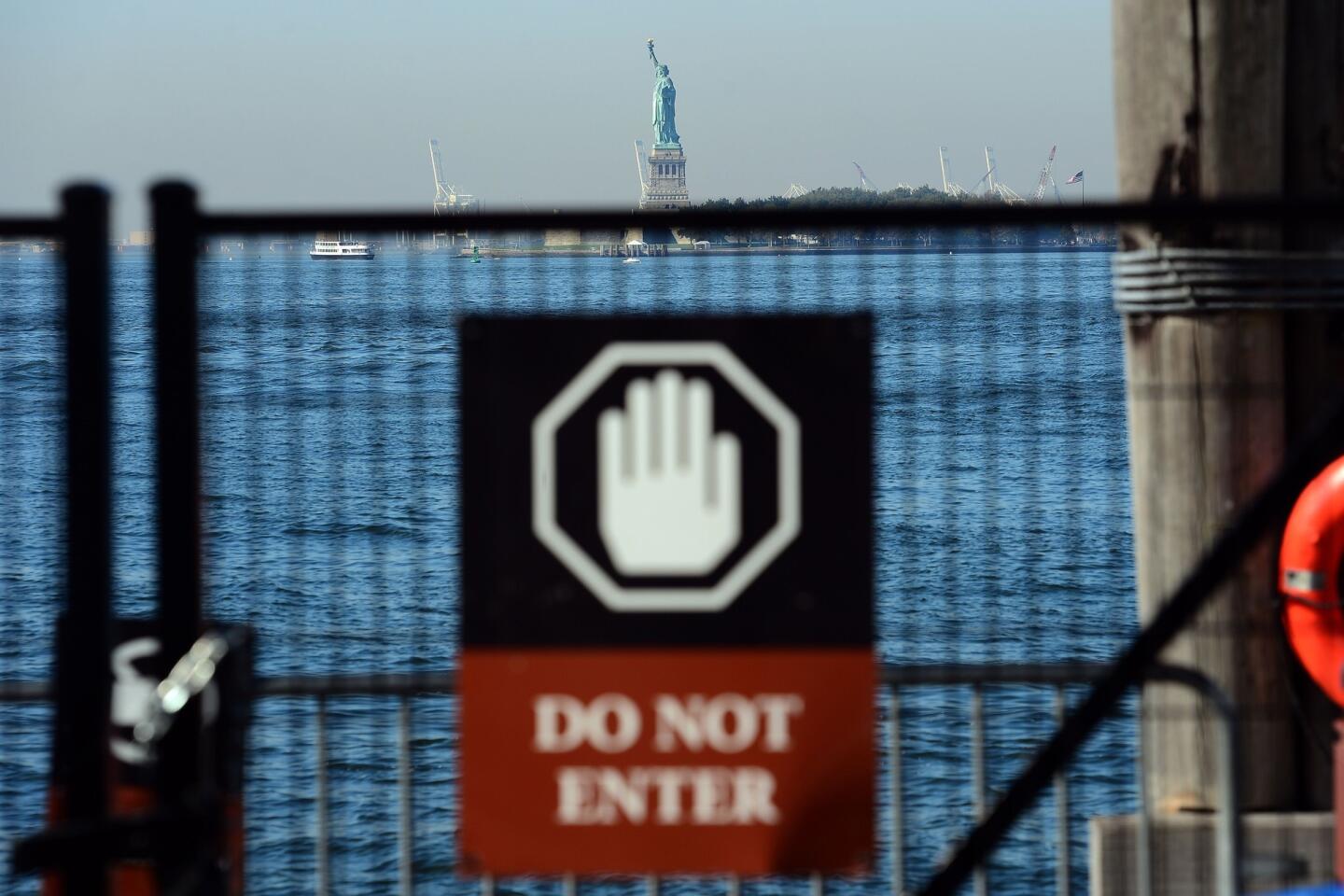Senate leaders close in on deal to end budget standoff
WASHINGTON — Two weeks into a budget impasse that has left Americans dismayed by Washington brinkmanship, an outline of a deal emerged Monday as Senate leaders worked to prevent a potentially catastrophic debt default and end the damage inflicted by the lingering government shutdown.
Details remained in flux, but Senate aides said the plan would give the government authority to borrow to pay its bills into February and would reopen federal agencies until Jan. 15.
In the meantime, to prevent another shutdown, a House-Senate committee would negotiate an overarching budget agreement by Dec. 13 that would allow Congress to pass its regular bills to fund the government.
The proposal would not make significant changes in President Obama’s healthcare law. But it could include a pair of tweaks: the delay of a new tax opposed by labor unions and an income verification requirement for customers who buy insurance through the new online marketplaces.
FULL COVERAGE: The U.S. government shutdown
Senate Majority Leader Harry Reid (D-Nev.) and Minority Leader Mitch McConnell (R-Ky.) need to win the support of their party caucuses Tuesday, and momentum could be stalled by a tea party filibuster. The proposal would also face major hurdles in the House, where conservative Republicans are likely to oppose it. But it appeared increasingly likely that the stalemate would end soon.
Activity swirled around the Capitol offices of Reid and McConnell, with intense talks underway three days before Thursday’s deadline to raise the nation’s $16.7-trillion borrowing capacity and avert a potential default.
“We’ve made tremendous progress,” Reid said as he closed the Senate in the evening, counseling patience. “Perhaps tomorrow will be a bright day. We’re not there yet. We hope it will be.”
The usually straight-faced McConnell echoed the sentiment, smiling briefly. “We had a good day,” he said. “It’s safe to say we made substantial progress, and we look forward to making more progress in the near future.”
The president had summoned the two Senate leaders, as well as House Speaker John A. Boehner (R-Ohio) and Minority Leader Nancy Pelosi (D-San Francisco), to the White House on Monday, but the session was postponed — a sign the administration was optimistic that Senate negotiators were making headway on the standoff.
“There’s been some progress on the Senate side, with Republicans recognizing it’s not tenable, it’s not smart, it’s not good for the American people to let America default,” Obama said during a visit to Martha’s Table, a food bank in Washington.
PHOTOS: 2013’s memorable political moments
A potential filibuster could prolong the debate. But experts have said the promise of a deal could calm the restless financial markets. Sen. Ted Cruz (R-Texas), who spearheaded the drive to kill or delay Obama’s healthcare law using the government-funding bill, held out the possibility that he would filibuster, but said, “I want to wait to see what the details are.”
Any Senate deal is expected to hit turbulence in the House. Boehner’s Republican majority has resisted compromise as the hard-right flank sought to use the usually routine budget bills as leverage in their failed campaign to stop the healthcare law.
House Republicans have become increasingly resentful of having legislation forced upon them by the Senate. With the debt deadline fast approaching and the GOP suffering heavily in the polls for its handling of the crisis, Boehner may have little opportunity to amend the package — even if he could unite his troops around a common approach.
Boehner’s office, across the Capitol from those of the Senate leaders, was a hectic way station Monday as the Ohio Republican’s leadership team filed in for private meetings.
“If the Senate comes to an agreement, we will review it with our members,” Boehner spokesman Michael Steel said.
Congress faces a two-pronged problem: It must vote both to lift the debt limit and to fund the government. On Tuesday, the federal government shutdown will enter its third week.
The outlines of the deal would solve both issues, but only temporarily.
The proposal to lift the debt limit until February is longer than Republicans had sought but far shorter than Democrats had wanted. Democrats wanted to extend it through next year to ensure the issue would not come up until after the November 2014 midterm election.
PHOTOS: The battle over Obamacare
Government agencies would reopen, with money provided until Jan. 15. Democrats wanted the extension to expire before a new round of across-the-board cuts takes effect. Those so-called sequester cuts are scheduled to kick in 15 days after Congress adjourns for the year.
Democrats — and some Republicans — hope to use proposed budget negotiations to alter those cuts. Because the Pentagon would take the biggest hit in the next round of cuts, defense-oriented Republicans would also like to see them eased.
To reach agreement before the mid-January deadline, Congress would convene a budget conference committee responsible for either replacing the sequester with different cuts or finding new revenue. Failure to strike a deal would risk another government shutdown.
Senate negotiators appeared unlikely to include a delay of a new tax on medical device makers, which is part of the funding for the Affordable Care Act, in their proposed deal. That tax had been part of the talks.
But the emerging deal would delay for one year another tax created to fund part of the healthcare law, a levy some unions have opposed because it would hit plans that many labor organizations administer for their members.
“We continue to discuss the parameters of an agreement,” said Sen. Susan Collins (R-Maine), who helped broker a bipartisan framework. “I’m very pleased to learn those discussions have picked up pace.”
Divisions within the GOP have weakened the party’s hand throughout the negotiations with Democrats. The conflict between Republican leaders and their hard-right flank reemerged with the prospect of a deal.
An influential right-wing blogger, Erick Erickson, tweeted Monday: “Looking at the framework the Senate has come up with, the only [thing] that’s certain is Judas was a better negotiator than Mitch McConnell.”
In the House, Rep. Joe L. Barton (R-Texas) said, “No deal is better than a bad deal.”
But Sen. John McCain (R-Ariz.), who has called the tea party efforts to stop the healthcare law a “fool’s errand,” spent time on the Senate floor highlighting a report about the GOP’s dismal poll numbers.
And Sen. Bob Corker (R-Tenn.) criticized efforts to repeal the law. “Let’s just spell out what’s happened here: We’ve wasted two months talking about something that was never going to happen,” he said.
The current proposal “isn’t quite fully baked yet,” Corker said. “As one would expect, there are still conversations that are taking place on the other side of the building too.”
More to Read
Start your day right
Sign up for Essential California for news, features and recommendations from the L.A. Times and beyond in your inbox six days a week.
You may occasionally receive promotional content from the Los Angeles Times.
